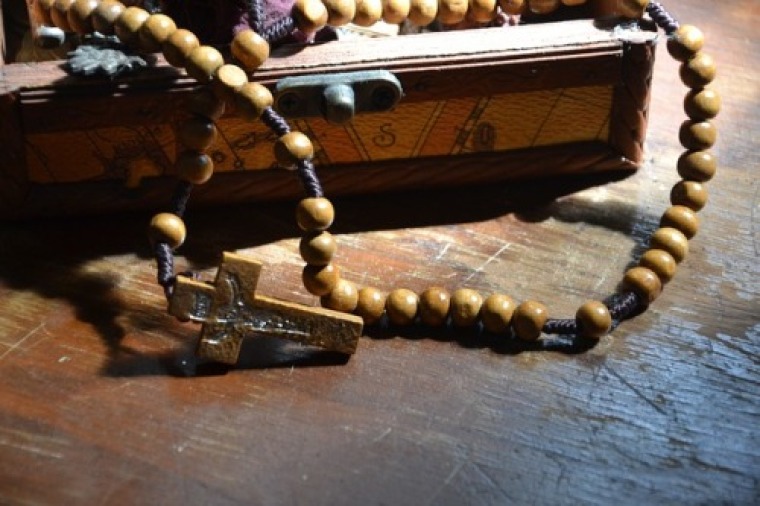

When our children were little and growing up even to their teenage years, telling them each a separate story was part and parcel of my parental 'things-I-did'. There would the mandatory reading of a book and a bible story by my wife and then a story from me – from my imagination to their imagination.
We had four children so my wife Delma and I would take turns with the four of them. The youngest two first, then we'd swap and then the oldest two, and then we'd swap again. This 'reading and telling stories' has continued now we have grand children.
My imaginative stories however have gained something of iconic status in our family and they spring forth often after meal times. They tend to have a grain of truth to make them sound 'plausible' and whole chucks of apocrypha to add adventure.

Story 1 – after the family meal
The family (grand children) was visiting us and one of the grand children was having 'meal time' dramas (welcome to parent land) and the subject of delicacies came up in the conversation.
So this gave rise to one of Pop's kitchen table stories: It related to an incident in France many years ago now, where I discovered the French delicacy of frog's legs. We all sat down in the Parisian family restaurant and the menu's were handed to us by the waiter.
This was the story:
Pop has had a very interesting life with much international travel. He understood a smattering of Spanish, Italian, Russian (preached in a Melbourne Russian church with a translator), German (watched many war movies), Zulu (has an evangelist friend who speaks Zulu), and numerous South Pacific languages due to his many missions.
But, he had never learnt French. The French language was mystery to Pop, but not to be outdone, Pop looked at the menu very carefully and saw something that interested me The menu read: "Le frog, Le leg, Le jump". Well, Pop exclaimed, not knowing French, that sounds like Steak, and in Pop's imagination, he could see the waiter bringing his meal, a large T-bone steak with vegetables piled up on a super huge dinner plate, as Pop had had in any number of rural New South Wales country town main street eating places.
So Pop ordered what he read: "Le frog, Le leg, Le jump" - 35 Franks. The waiter took everyone's orders and 20 minutes later out came the meals.
Pop's eyes nearly popped out of his sockets – there was gigantic white plate and on his plate was one small frog leg. Everyone waited to see what Pop's reaction might be. Pop was speechless. Grand-ma, not wanting a scene, said: "Give it here, I'll eat it" and she popped it into her mouth and ate "Le frog, Le leg, Le jump" .
And that's why grand-ma's been hopping around ever since!

2nd story – bed time
Our 5 year old grand-daughter got the 'frustration' ending from the previous evening as he did every night to her mother all those years ago. The stories would draw a climatic ending, but then, Pop would say at that vital moment: "We'll find out what happens tomorrow night!"
And so it was this night, Pop was following on the story of imagination from the previous evening. In that story the Princess visited the jeweller to select one of five broaches to wear at the Ball. It was a wonderful Ball, and next day, the Prince came to her Palace to ask her out. And the following night we'd find out whether she said 'yes', or 'no'!
The story continues:
The Princess wanted to say yes, but immediately realised the unwelcome consequences if she said, yes. Everyone in the entire surrounds who know that the Prince and the Princess were going out together. Her parents would instantly start preparing for the wedding, his parents would be on the phone to her parents deciding what castle they would live it. The tabloids would be all over the story. They would never get any peace, but more so, she needed to know whether she liked the Prince.
The Princess came up with a solution. They would meet in the market place for coffee in disguise. He would wear ugly jeans, a black turtle neck top, hair mucked up and old shoes. She would wear jeans with cuts in them, a brown nondescript top. Her hair would be ruffled and untidy, the most gangling ear rings and a make believe ring in her nose and flat ugly shoes.
Sue enough they met for coffee in their disguises, then they ordered a meal together and then later in the evening went to the movies and watched a love story. They had a most wonderful evening together, just being themselves, like all the other young people, but then he realised they had a problem. Neither of them could do home looking as they did as the security people might shoot first and ask questions later (as it were).
So the Prince came up with a solution. He had a friend who flew helicopters so they contacted him, they met at the airport and they flew in the helicopter over the castle walls, past the security people, and landed in the court yard. The King and Queen heard the commotion and looked out of their bedroom window and saw these two unkept young people alighting from the helicopter and then there was a great sense of calm came over them. How did they know who these two untidy scruffy young people were?
The answer was simple: Both the Princess and the Prince as part of their youth instructions went to deportment class to learn how a Princess walks and how a Prince walks. Once they saw the young lady and the young man walking from the helicopter they knew exactly who they were. They rejoiced. The Princess was home safe! And what an adventure to keep in her heart.
And did the Princess and Prince continue on with their courtship? Did the Princess like the Prince? We'll find out what happened tomorrow night !!
Stories are the life blood of the Gospel
Jesus knew the value of stories. Jesus' parables have lived on down through the centuries as the most revealing and powerful images - of life, behaviour and belief. Tisha Williams our indigenous Columnist has written about the value of such stories.
Laura Veloso another of our Columnists wrote of this "Have you told a story lately", as has our Children's Ministry Columnist Stephen Urmston "Story puppets, relaxed and clear".
As Stephen Urmston says, never underestimate the value and power of a story.

Dr Mark Tronson is a Baptist minister (retired) who served as the Australian cricket team chaplain for 17 years (2000 ret) and established Life After Cricket in 2001. He was recognised by the Olympic Ministry Medal in 2009 presented by Carl Lewis Olympian of the Century. He mentors young writers and has written 24 books, and enjoys writing. He is married to Delma, with four adult children and grand-children.
Mark Tronson's archive of articles can be viewed at http://www.pressserviceinternational.org/mark-tronson.html
